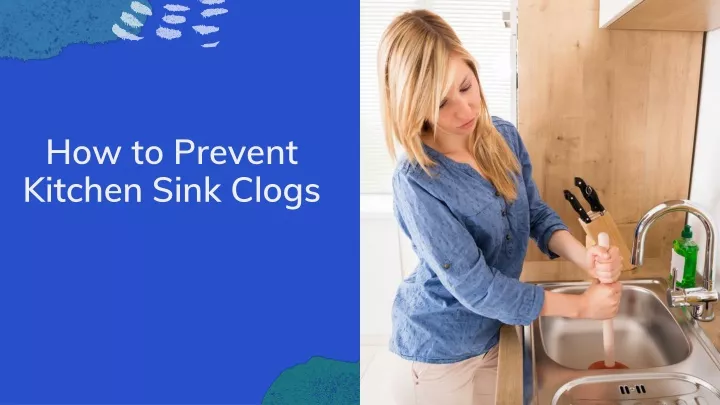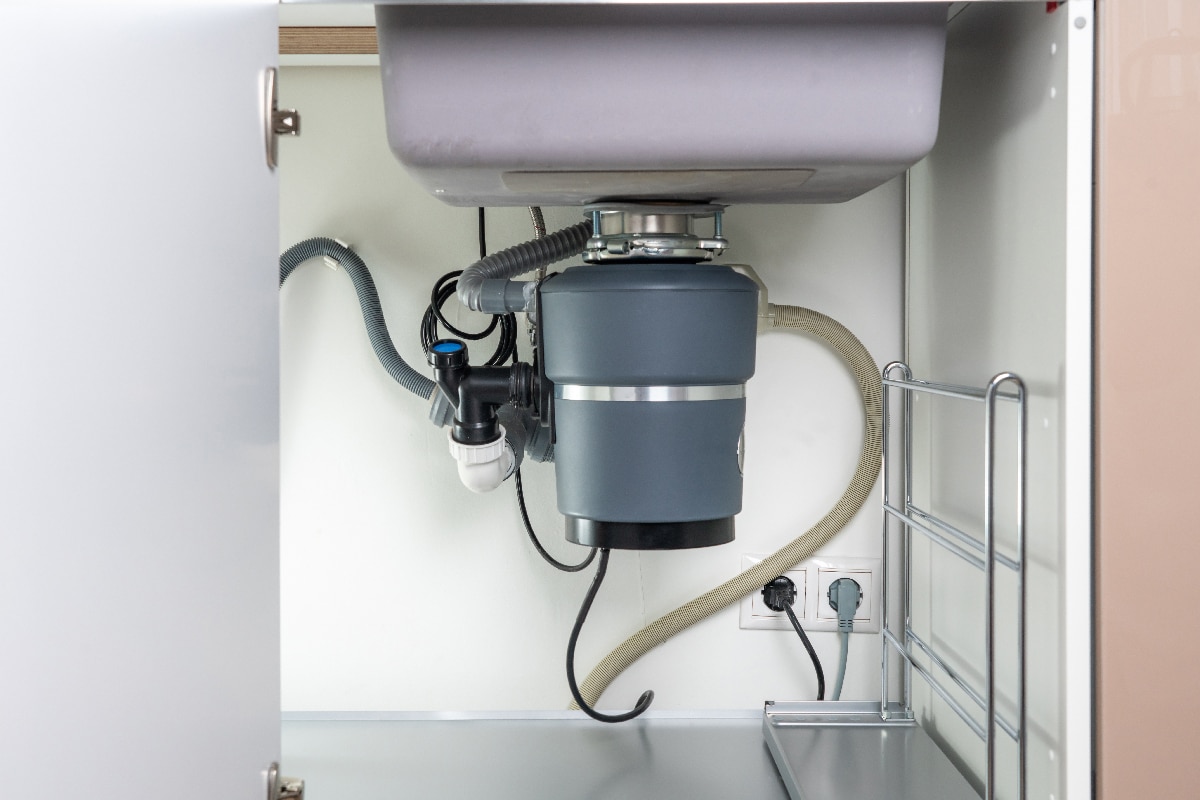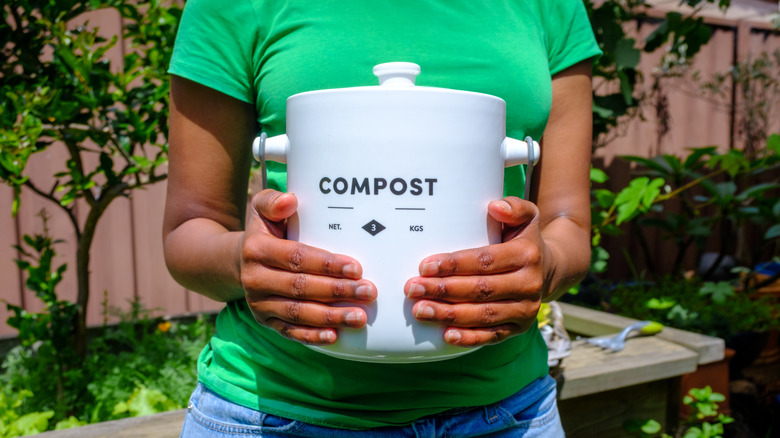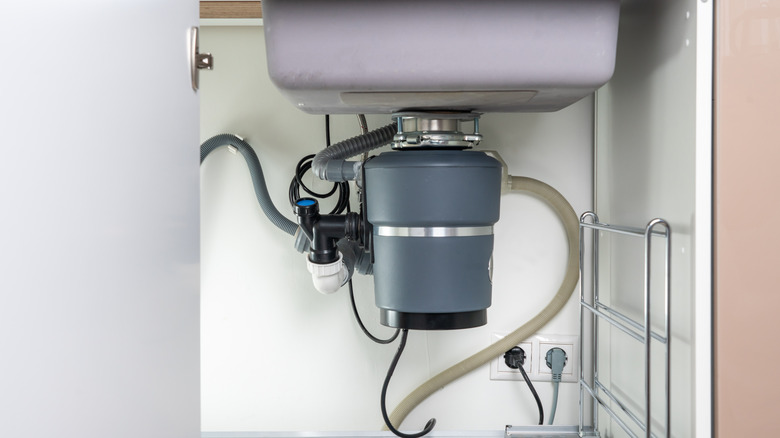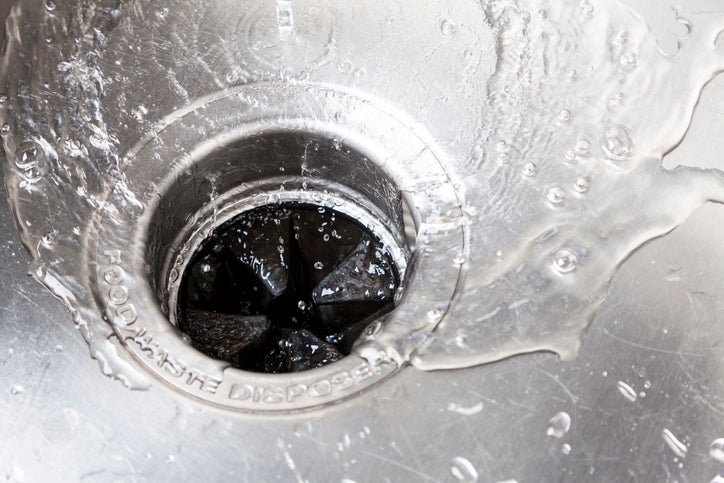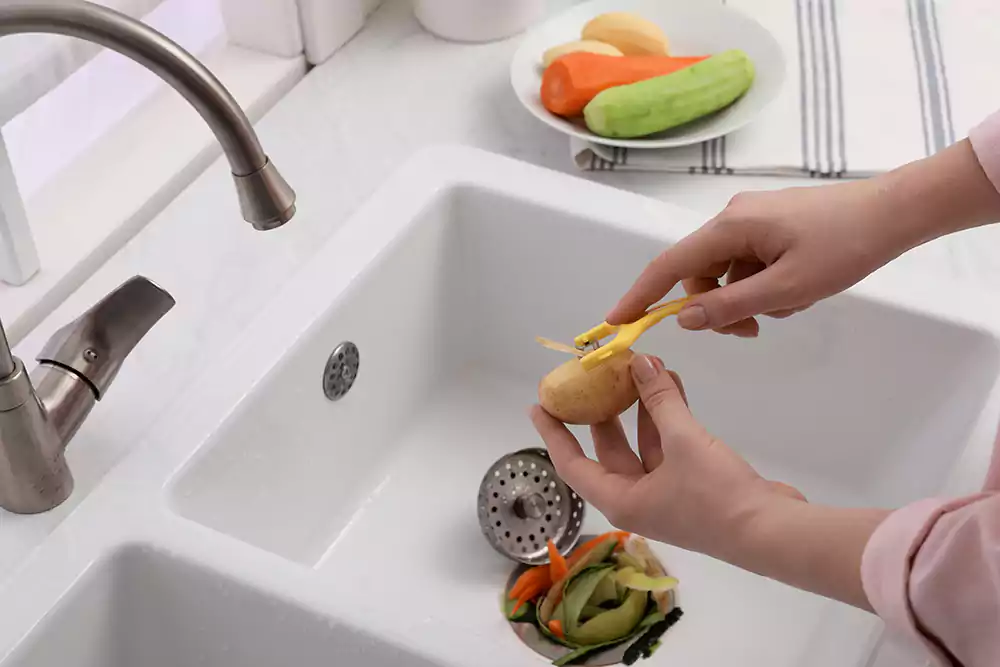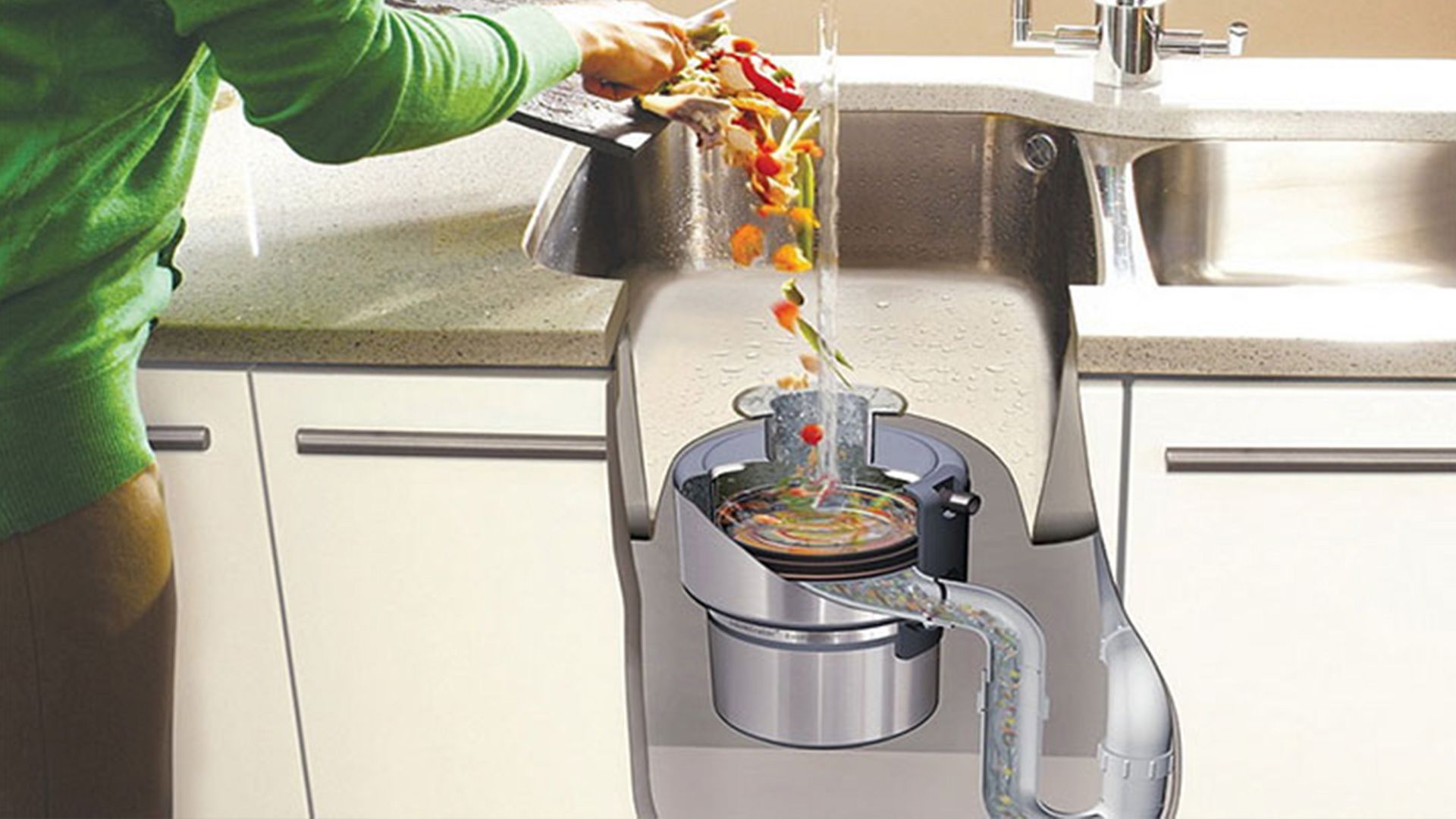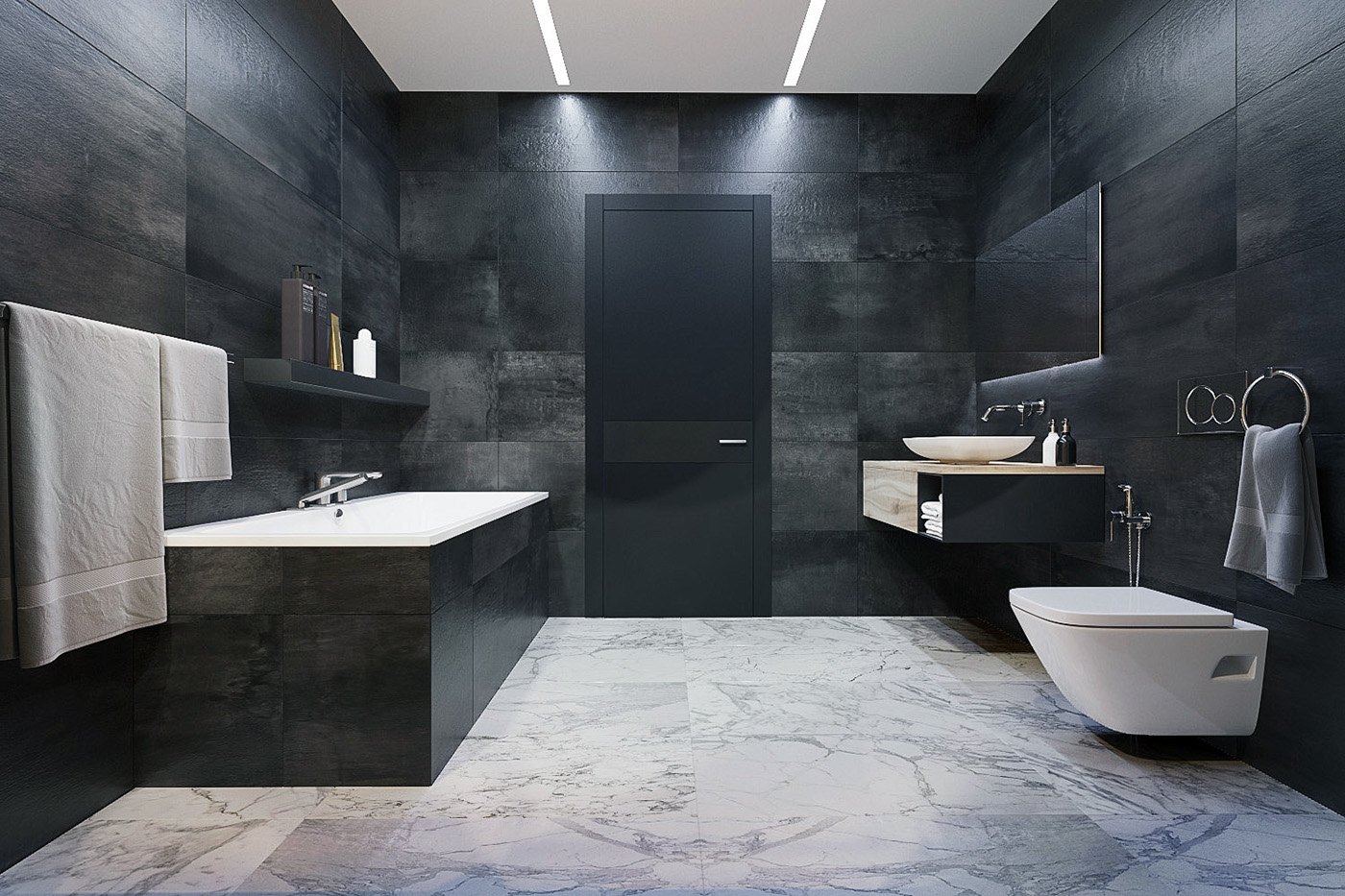1. How to Unclog a Kitchen Sink and Garbage Disposal
If you've ever experienced a clogged kitchen sink and garbage disposal, you know how frustrating it can be. Not only does it make it difficult to use your sink, but it can also cause unpleasant odors and even damage your plumbing. Fortunately, there are several DIY methods you can try to unclog your kitchen sink and garbage disposal.
2. DIY Methods for Unclogging a Kitchen Sink and Garbage Disposal
One of the most common and effective ways to unclog a kitchen sink and garbage disposal is by using a combination of baking soda and vinegar. Simply pour a cup of baking soda down the drain, followed by a cup of vinegar. Let it sit for a few minutes and then flush with hot water. This mixture helps to loosen and break down any debris causing the clog.
3. Common Causes of a Clogged Kitchen Sink and Garbage Disposal
Understanding the common causes of a clogged kitchen sink and garbage disposal can help you prevent future clogs. Some of the most common culprits include food scraps, grease and oil, and foreign objects like utensils or bones. It's important to be mindful of what you put down your sink to avoid clogs.
4. Using Baking Soda and Vinegar to Unclog a Kitchen Sink and Garbage Disposal
As mentioned earlier, using a mixture of baking soda and vinegar is an effective way to unclog a kitchen sink and garbage disposal. You can also add some hot water or boiling water to the mixture to help break down tougher clogs. This method is safe and environmentally friendly, making it a popular choice for homeowners.
5. Using a Plunger to Unclog a Kitchen Sink and Garbage Disposal
If the baking soda and vinegar method doesn't work, you can also try using a plunger to unclog your kitchen sink and garbage disposal. Simply fill the sink with enough water to cover the plunger, place the plunger over the drain, and push and pull to create suction. This can help to dislodge any stubborn clogs.
6. Using a Plumbing Snake to Unclog a Kitchen Sink and Garbage Disposal
If the clog is deep within your pipes, a plumbing snake may be necessary to unclog your kitchen sink and garbage disposal. You can purchase a plumbing snake from your local hardware store or rent one. Insert the snake into the drain and twist and push until you feel resistance. Then, slowly pull out the snake and dispose of any debris that comes out with it.
7. How to Prevent Clogs in Your Kitchen Sink and Garbage Disposal
Prevention is key when it comes to clogged kitchen sinks and garbage disposals. One way to prevent clogs is by using a sink strainer to catch food scraps and other debris before they go down the drain. It's also important to avoid pouring grease and oil down your sink, as they can solidify and cause clogs.
8. Professional Tips for Unclogging a Kitchen Sink and Garbage Disposal
If your DIY efforts are unsuccessful, it may be time to call a professional plumber. They have the tools and expertise to unclog your kitchen sink and garbage disposal without causing any damage. They can also provide tips on how to prevent future clogs and keep your plumbing in good condition.
9. Signs That Your Kitchen Sink and Garbage Disposal Need to be Unclogged
It's important to address clogs in your kitchen sink and garbage disposal as soon as possible. Some common signs that your sink and disposal need to be unclogged include slow draining water, foul odors, and unusual noises coming from your garbage disposal. Don't ignore these warning signs as they can lead to bigger and more costly plumbing issues.
10. Troubleshooting Common Issues with a Clogged Kitchen Sink and Garbage Disposal
If you're experiencing a clogged kitchen sink and garbage disposal, there are a few troubleshooting techniques you can try before calling a professional. These include resetting your garbage disposal, checking for a blockage in the dishwasher hose, and checking for a blockage in the garbage disposal's discharge pipe. If these methods don't work, it's best to seek professional help.
In conclusion, a clogged kitchen sink and garbage disposal can be a major inconvenience, but with the right knowledge and techniques, you can easily unclog it yourself. By understanding the common causes of clogs and implementing prevention methods, you can avoid future clogs and keep your plumbing in top condition. Remember, if DIY methods don't work, don't hesitate to call a professional for help.
Why a Clogged Kitchen Sink and Garbage Disposal Can Be a Nightmare

The Importance of a Properly Functioning Kitchen Sink and Garbage Disposal
 A clogged kitchen sink and garbage disposal can quickly turn into a homeowner's worst nightmare. Not only does it create a major inconvenience, but it can also lead to costly repairs if left untreated. The kitchen sink and garbage disposal are essential components of any home, used daily for washing dishes, preparing food, and disposing of food waste. When these appliances become clogged, it can disrupt the entire household and put a damper on daily routines.
A clogged kitchen sink and garbage disposal can quickly turn into a homeowner's worst nightmare. Not only does it create a major inconvenience, but it can also lead to costly repairs if left untreated. The kitchen sink and garbage disposal are essential components of any home, used daily for washing dishes, preparing food, and disposing of food waste. When these appliances become clogged, it can disrupt the entire household and put a damper on daily routines.
The Common Culprits of a Clogged Kitchen Sink and Garbage Disposal
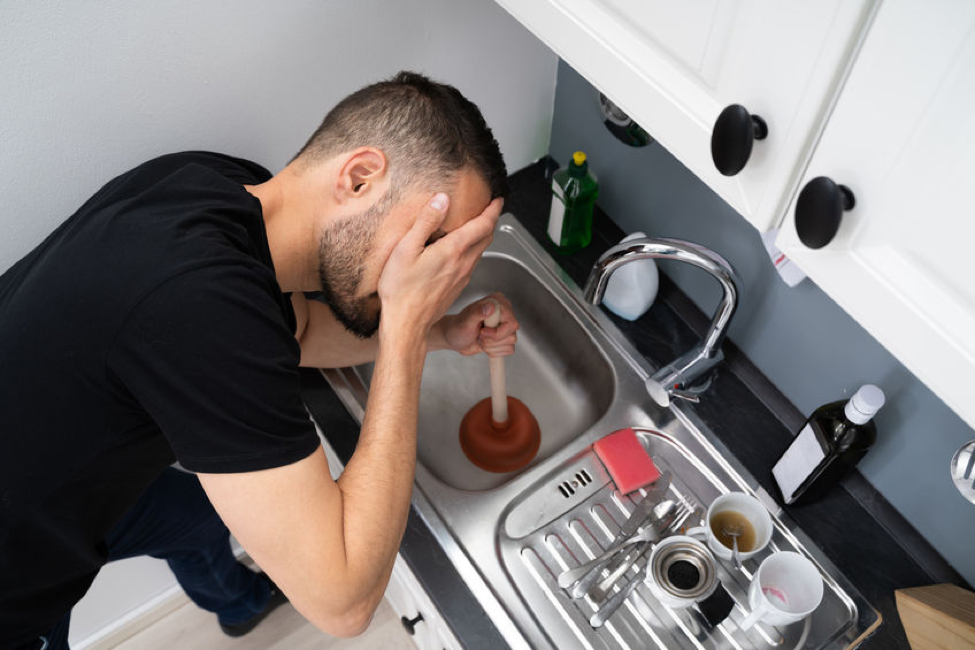 There are several reasons why a kitchen sink and garbage disposal can become clogged. One of the main culprits is food waste. Many people assume that their garbage disposal can handle all types of food scraps, but this is not the case. Foods like grease, oils, and fibrous vegetables can quickly build up and cause blockages in the disposal and pipes. Another common cause of clogs is foreign objects, such as utensils or small items, accidentally falling into the sink and getting stuck in the disposal.
Pro Tip:
To prevent clogs in the future, always remember to dispose of food waste properly and avoid putting any foreign objects down the drain.
There are several reasons why a kitchen sink and garbage disposal can become clogged. One of the main culprits is food waste. Many people assume that their garbage disposal can handle all types of food scraps, but this is not the case. Foods like grease, oils, and fibrous vegetables can quickly build up and cause blockages in the disposal and pipes. Another common cause of clogs is foreign objects, such as utensils or small items, accidentally falling into the sink and getting stuck in the disposal.
Pro Tip:
To prevent clogs in the future, always remember to dispose of food waste properly and avoid putting any foreign objects down the drain.
Why Unclogging Your Kitchen Sink and Garbage Disposal Is a Priority
 Ignoring a clogged sink and garbage disposal can lead to bigger problems down the line. The stagnant water and food waste can create unpleasant odors, attract pests, and even cause damage to your pipes and plumbing system. Additionally, if you are experiencing a slow drain or complete blockage, it can disrupt your daily activities and make it challenging to prepare meals and clean up after.
Pro Tip:
As soon as you notice a clog in your kitchen sink and garbage disposal, it's crucial to take action and unclog it to avoid further complications.
Ignoring a clogged sink and garbage disposal can lead to bigger problems down the line. The stagnant water and food waste can create unpleasant odors, attract pests, and even cause damage to your pipes and plumbing system. Additionally, if you are experiencing a slow drain or complete blockage, it can disrupt your daily activities and make it challenging to prepare meals and clean up after.
Pro Tip:
As soon as you notice a clog in your kitchen sink and garbage disposal, it's crucial to take action and unclog it to avoid further complications.
Unclogging Your Kitchen Sink and Garbage Disposal
 Now that you understand the importance of keeping your kitchen sink and garbage disposal functioning properly, it's time to learn how to unclog them. There are several methods you can try, such as using a plunger, a drain snake, or a homemade mixture of baking soda and vinegar. If these DIY methods do not work, it's best to call a professional plumber to avoid causing further damage to your appliances and pipes.
Pro Tip:
Regular maintenance and cleaning of your kitchen sink and garbage disposal can help prevent clogs and keep them running smoothly.
Now that you understand the importance of keeping your kitchen sink and garbage disposal functioning properly, it's time to learn how to unclog them. There are several methods you can try, such as using a plunger, a drain snake, or a homemade mixture of baking soda and vinegar. If these DIY methods do not work, it's best to call a professional plumber to avoid causing further damage to your appliances and pipes.
Pro Tip:
Regular maintenance and cleaning of your kitchen sink and garbage disposal can help prevent clogs and keep them running smoothly.
In Conclusion
 A clogged kitchen sink and garbage disposal may seem like a minor inconvenience, but it can quickly turn into a major problem if left untreated. By understanding the common causes of clogs, the importance of promptly addressing them, and how to unclog them, you can keep your kitchen sink and garbage disposal functioning properly and avoid costly repairs. Remember to dispose of food waste properly and perform regular maintenance to prevent future clogs.
A clogged kitchen sink and garbage disposal may seem like a minor inconvenience, but it can quickly turn into a major problem if left untreated. By understanding the common causes of clogs, the importance of promptly addressing them, and how to unclog them, you can keep your kitchen sink and garbage disposal functioning properly and avoid costly repairs. Remember to dispose of food waste properly and perform regular maintenance to prevent future clogs.



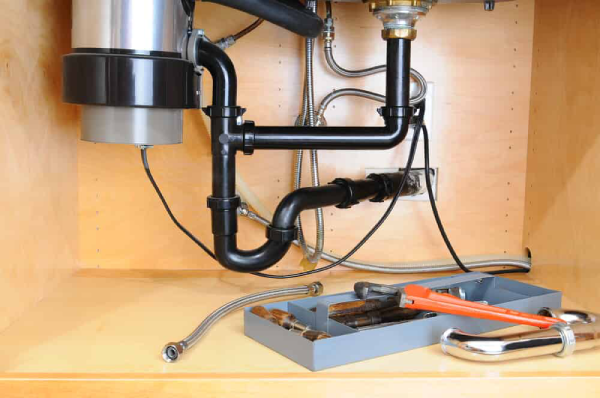

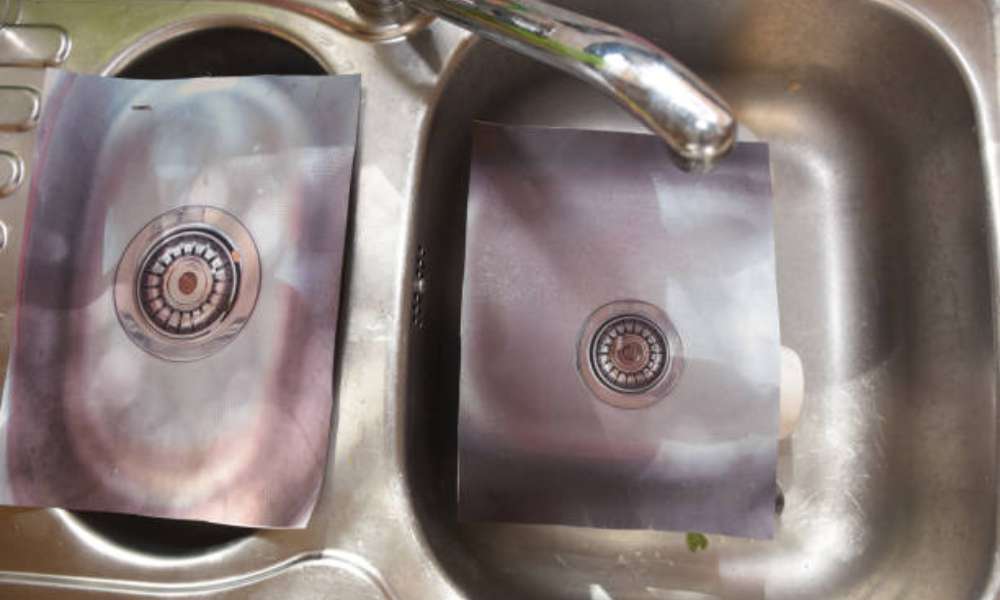
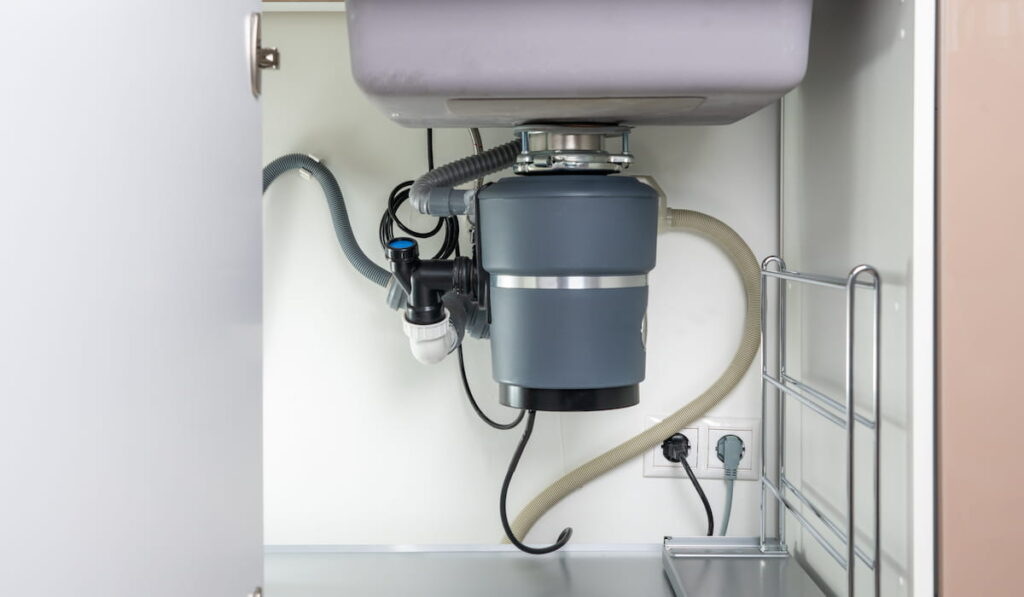
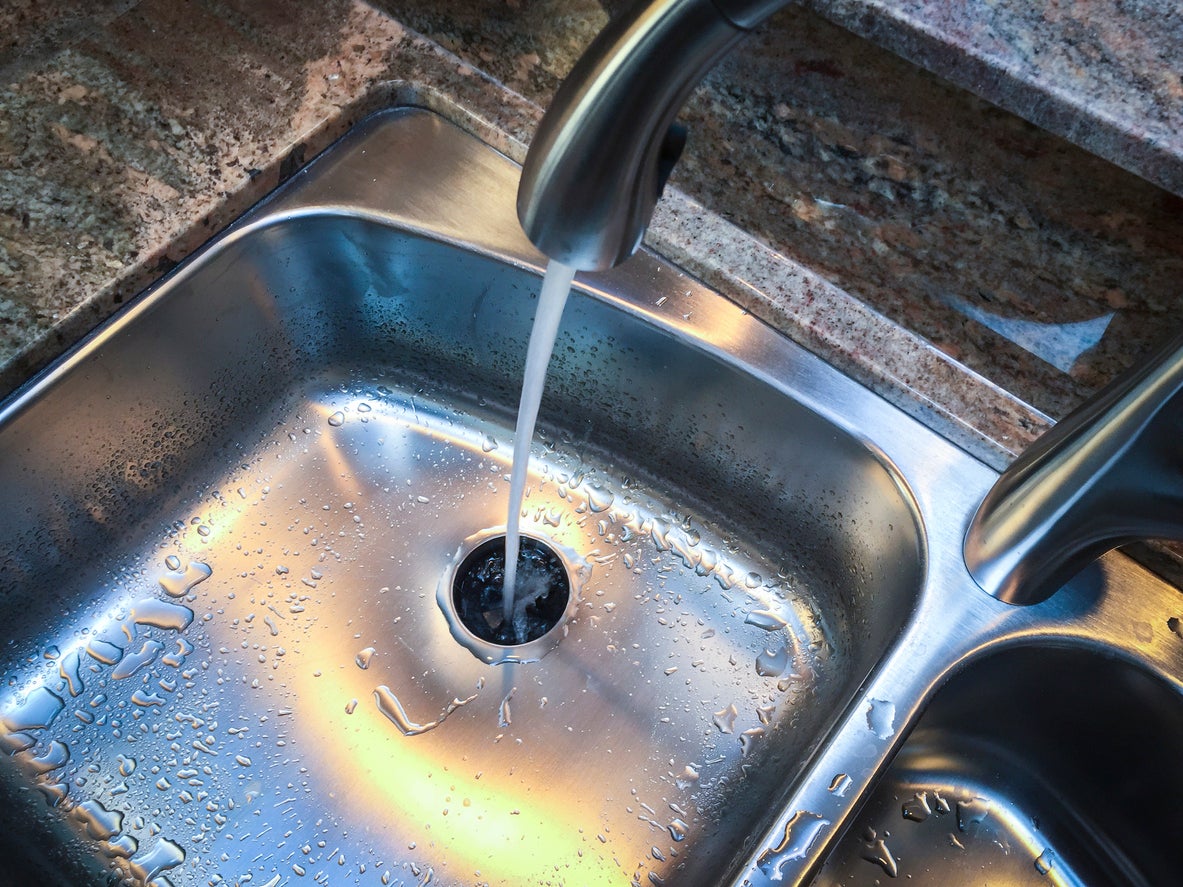

:max_bytes(150000):strip_icc()/GettyImages-186842003-5b732c3ac9e77c0057b2c920.jpg)






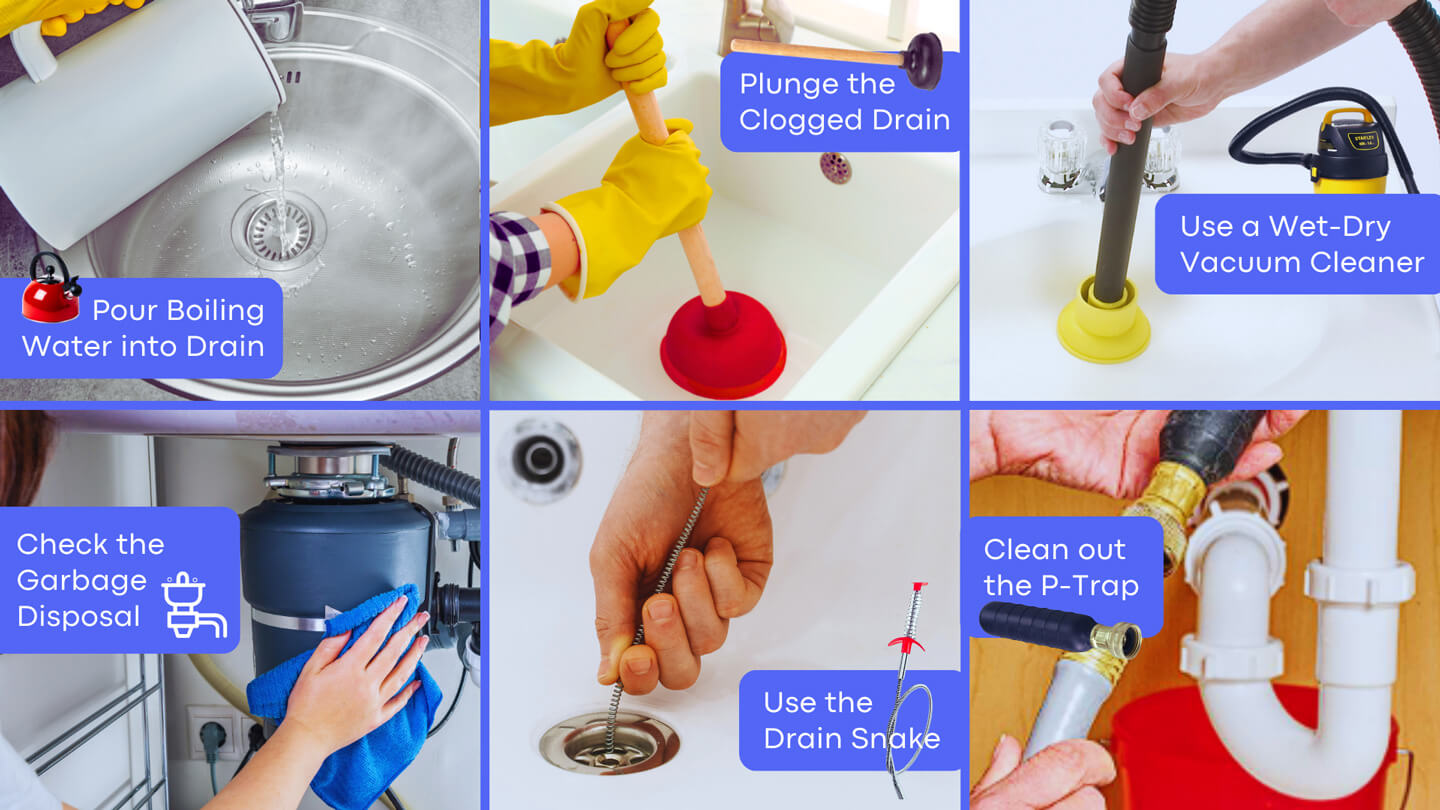



:max_bytes(150000):strip_icc()/how-to-install-a-sink-drain-2718789-hero-24e898006ed94c9593a2a268b57989a3.jpg)
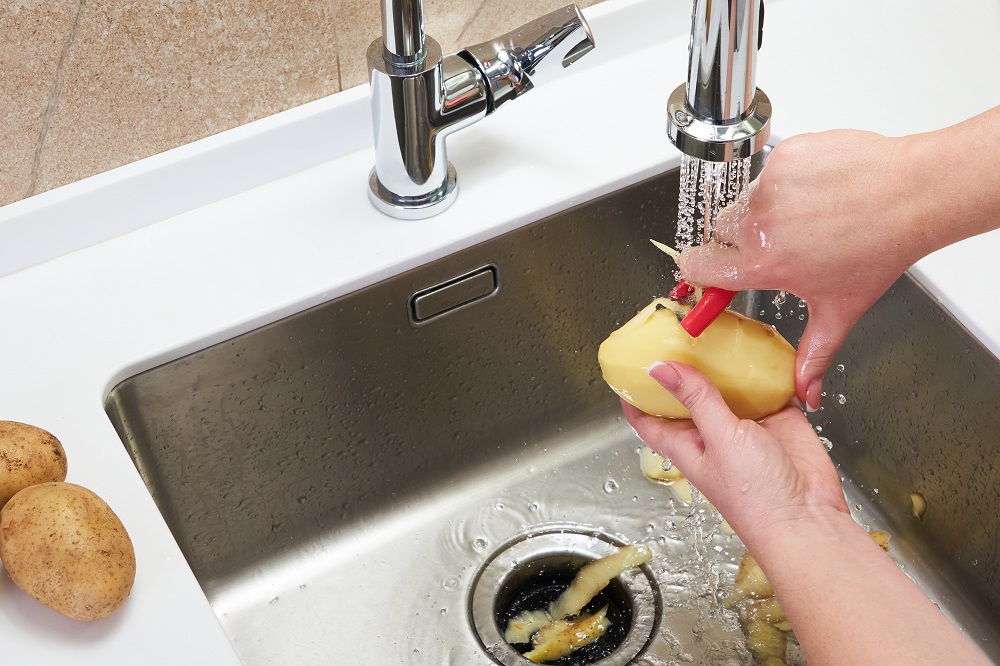
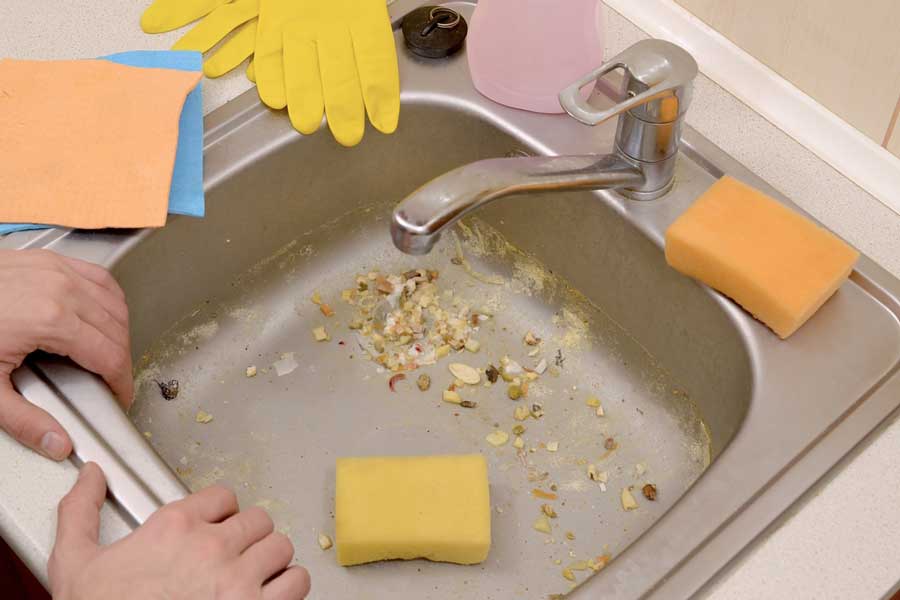









:max_bytes(150000):strip_icc()/freshen-and-unclog-drain-with-baking-soda-1900466-22-bbf940b70afa4d5abef0c54da23b1d3f.jpg)

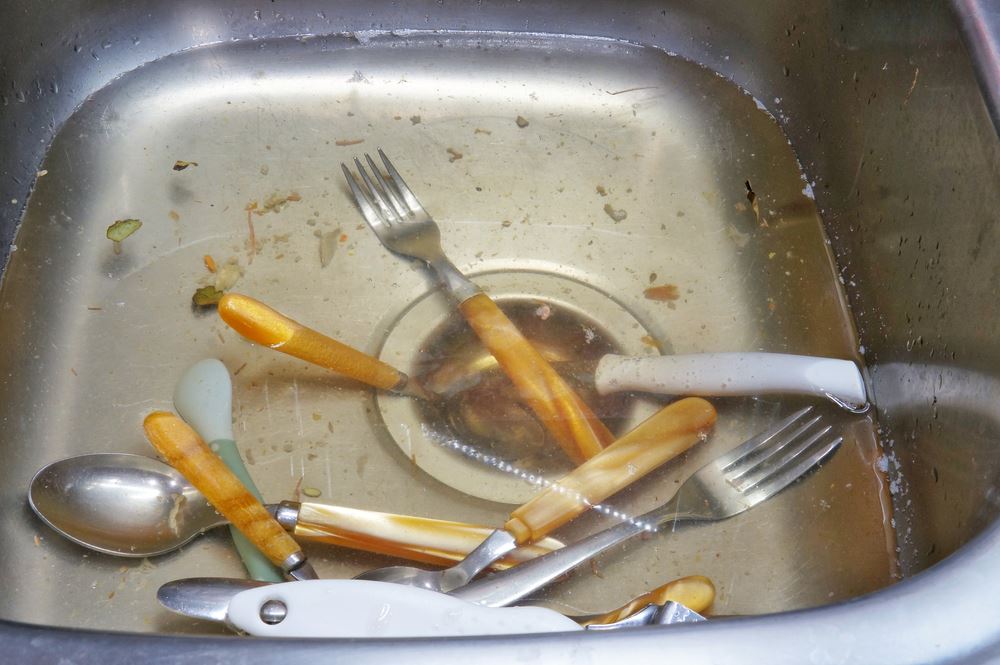
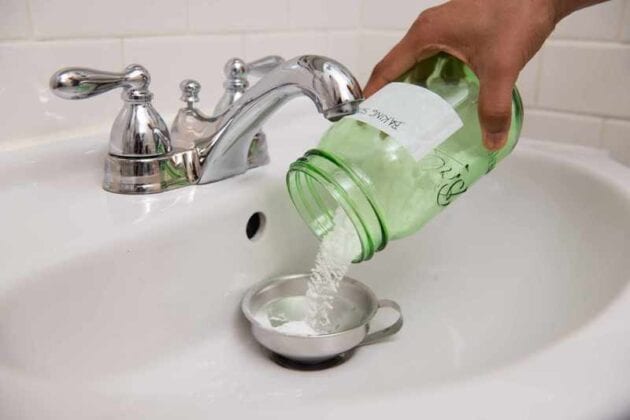
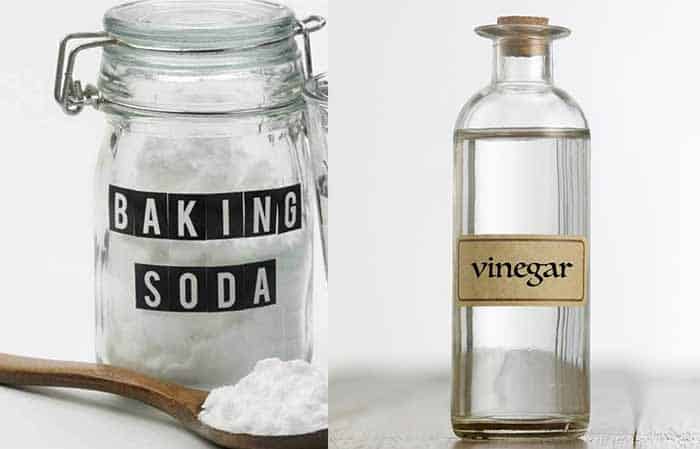
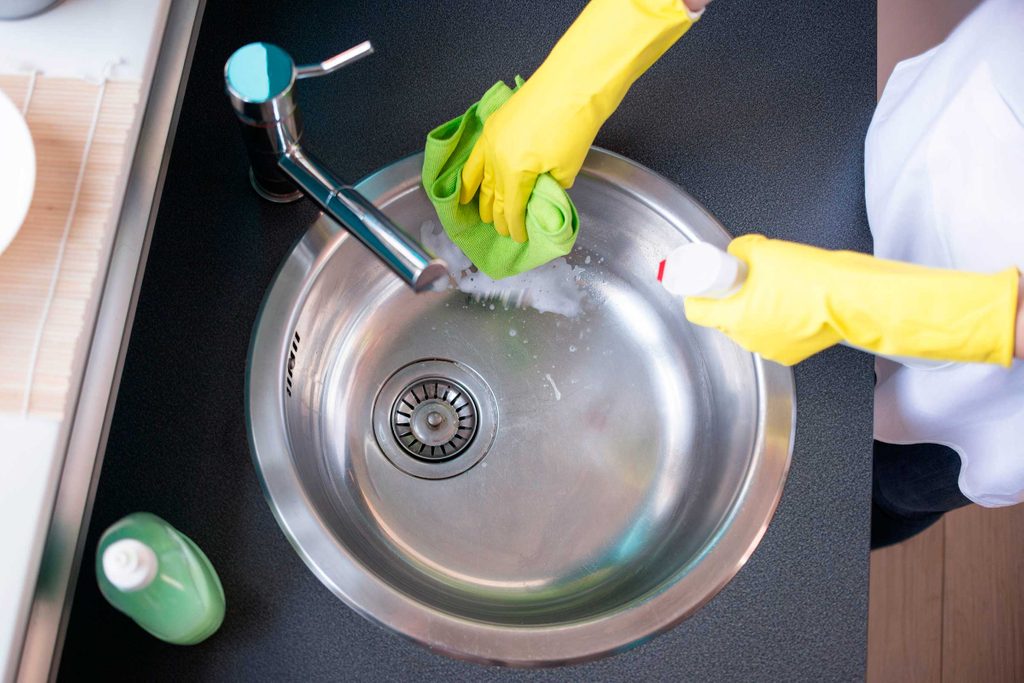


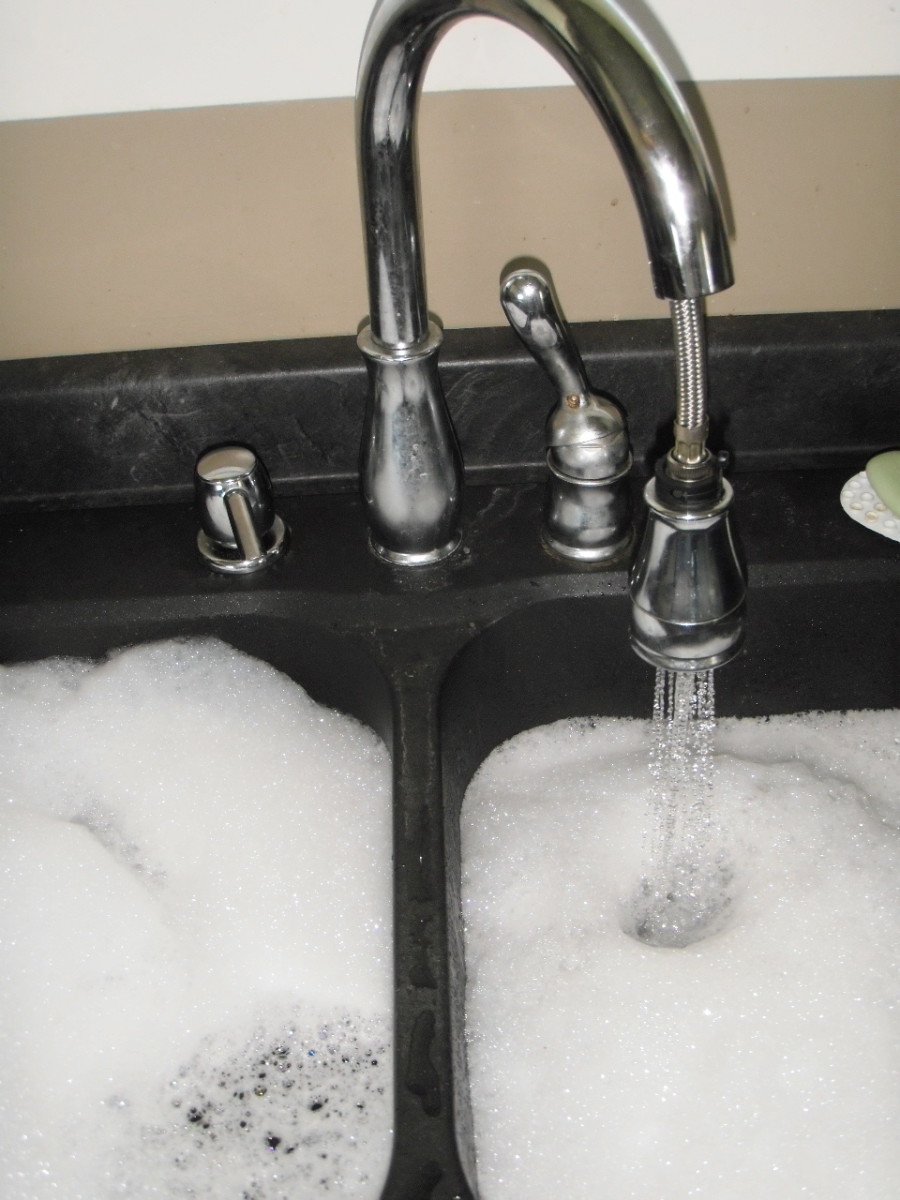




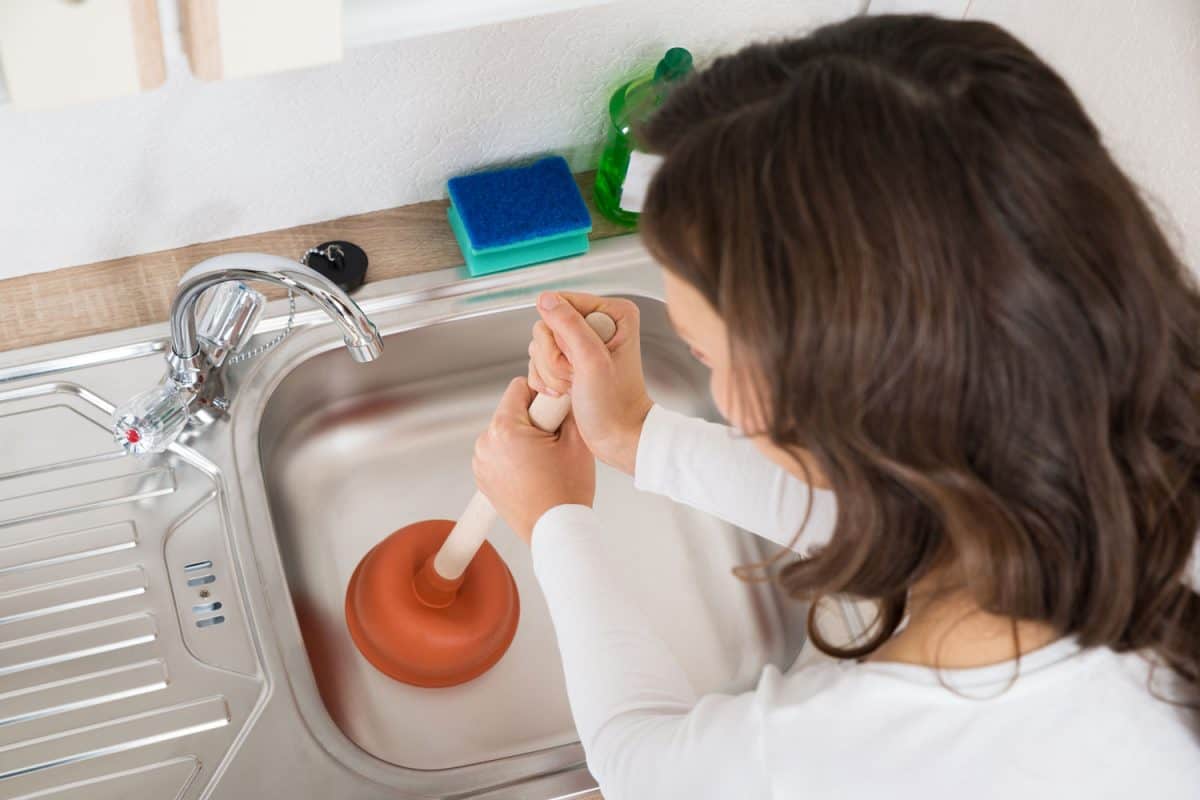



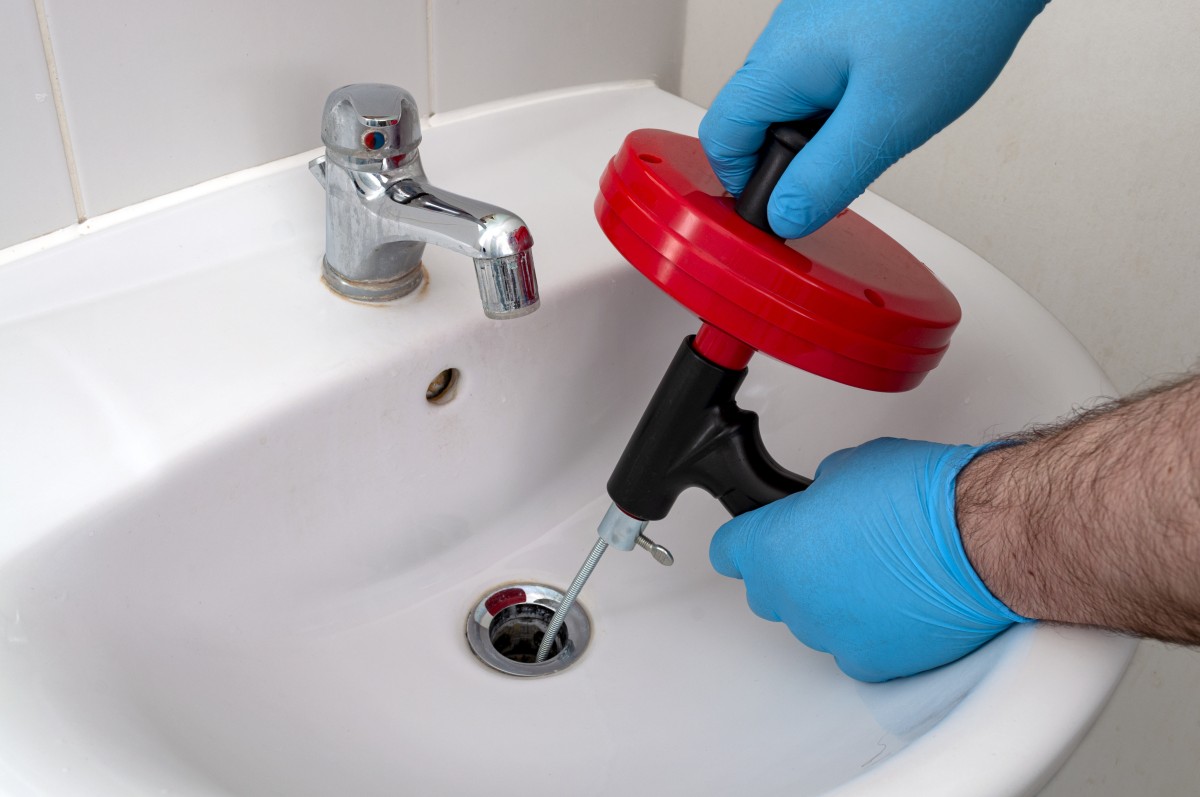
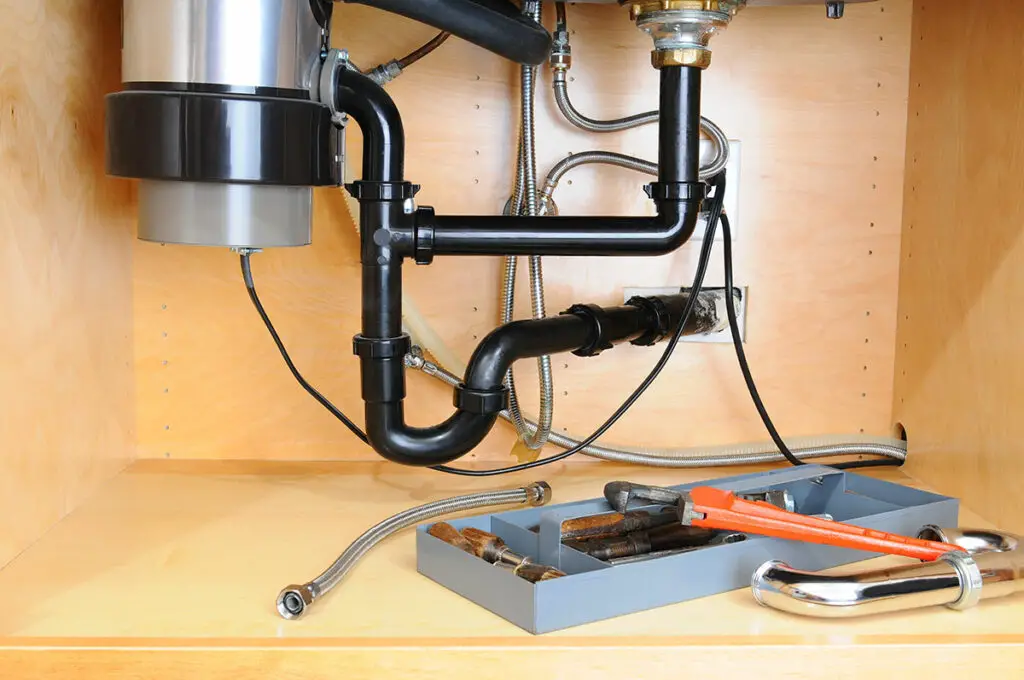



/how-to-install-a-sink-drain-2718789-hero-24e898006ed94c9593a2a268b57989a3.jpg)
